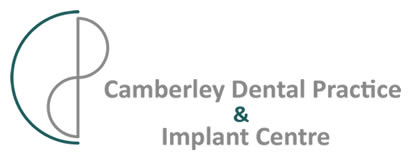Oral Health
Good oral health is easy to maintain. A simple routine of brushing and cleaning between the teeth, good eating habits and regular visits to your dental team can prevent most dental problems.
Although most people brush regularly, many do not clean between their teeth. Some people neglect their dental check-ups. Either of these, or a combination, can result in dental problems which may need to be remedied by dental professionals.
WHAT IS PLAQUE, AND WHY IS IT A PROBLEM?
Daily brushing and cleaning between teeth are important to your dental health because they remove plaque.
Plaque is a thin, difficult to see, sticky film that constantly forms on your teeth. When you eat foods containing sugars and starches, the bacteria in plaque produce acids which attack tooth enamel. The stickiness of the plaque keeps these acids in contact with the teeth. After many such attacks, and without proper care, the tooth enamel breaks down and a cavity forms. If plaque is not removed with daily brushing, it will eventually harden into calculus, or tartar. As tartar forms near the gum-line, gums can become irritated and inflamed. They can become swollen and may bleed occasionally, often whilst brushing. The gums begin to pull away from the teeth and form pockets that become infected. If this gum disease is not treated properly, the bone supporting the teeth is destroyed, and sound teeth may be needlessly lost.
Good oral hygiene requires the use of appropriate dental care products. As every mouth is unique, your requirements will need to be tailored specifically to your needs. The team at The Camberley Dental Practice have an extensive knowledge of the products available on the market today, and will be able to give recommendations or opinions. However, to give you an idea of what to look for when purchasing dental products, we would advise you to bear the following points in mind.
- When choosing a toothpaste or gel, look for a product containing fluoride.
Fluoride helps reduce tooth decay in adults and children. If you have sensitive teeth, one of our team may recommend a special toothpaste, to help alleviate the symptoms. - Electric toothbrushes can be as effective as manual brushes.
Persons with physical difficulties may find an electric toothbrush easier to use, and children may be more inclined to brush because of the novelty of an electric toothbrush. - Oral irrigating devices use a stream of water to remove food particles from around the teeth.
These devices can be useful for persons wearing orthodontic appliances or fixed bridges. Oral irrigators do not, however, remove plaque, and so are intended to enhance regular brushing and flossing, not replace.

